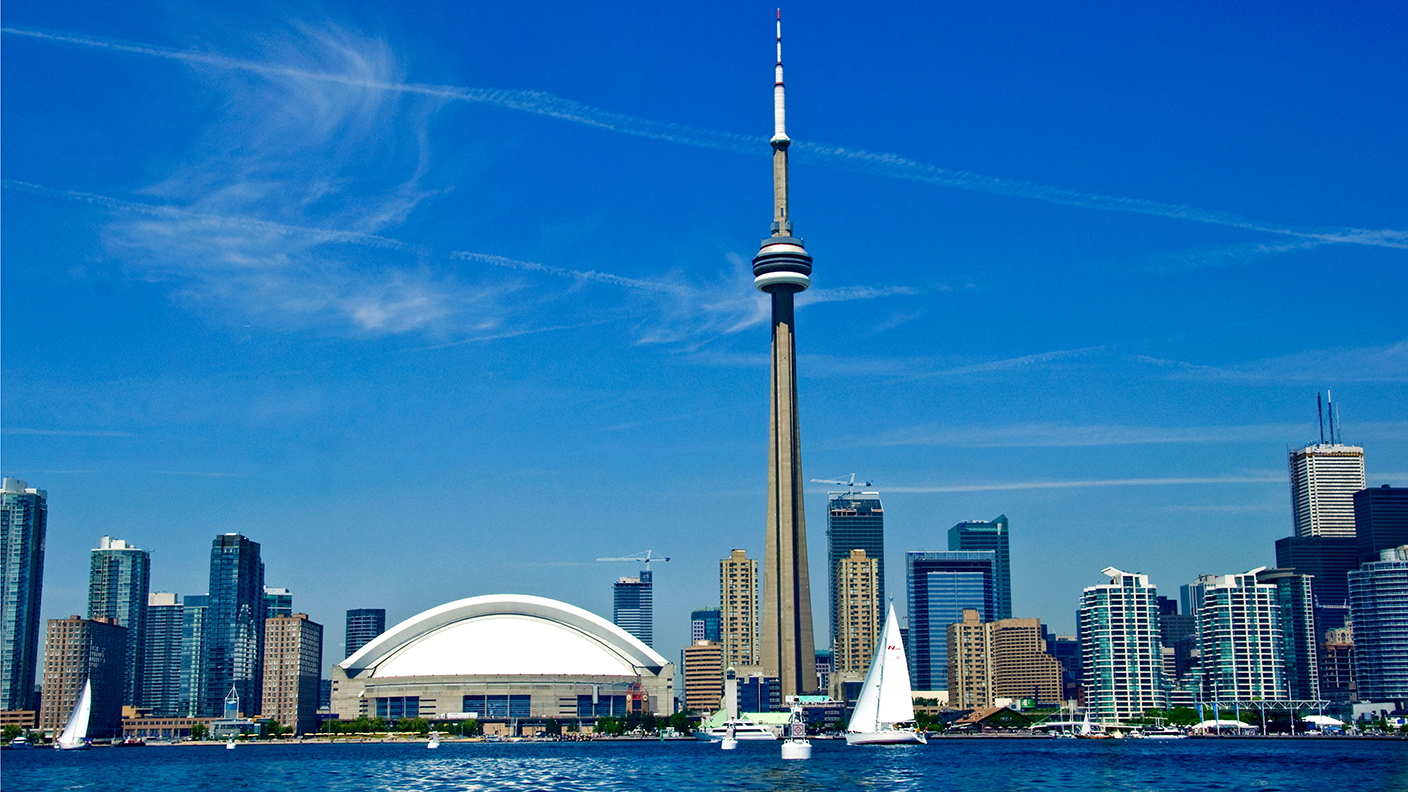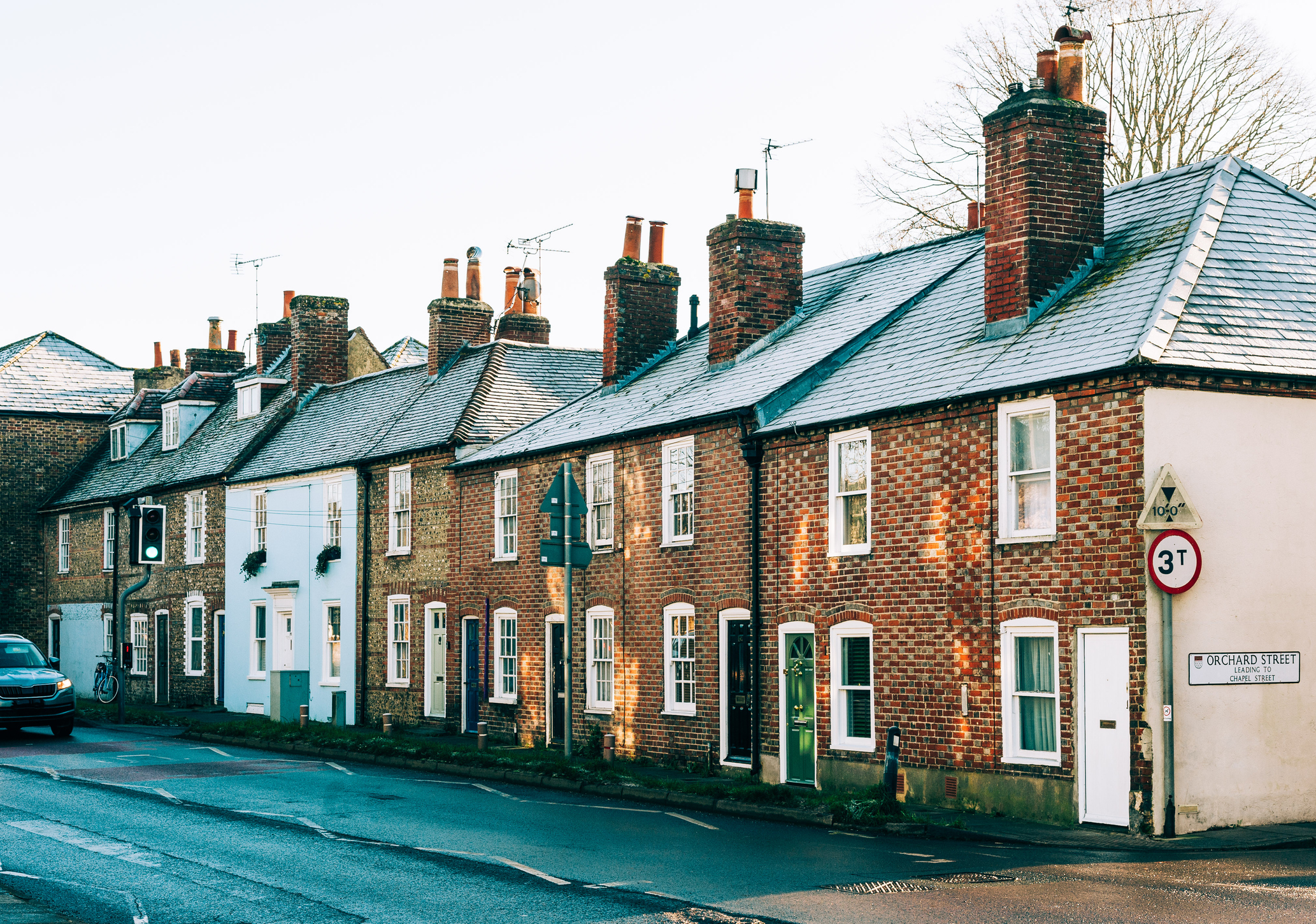The global property bubble bursts
After a two-year long worldwide boom in house prices fuelled by ultra-low interest rates, central bankers are tightening monetary policy and the global property bubble is starting to deflate.

Get the latest financial news, insights and expert analysis from our award-winning MoneyWeek team, to help you understand what really matters when it comes to your finances.
You are now subscribed
Your newsletter sign-up was successful
Want to add more newsletters?

Twice daily
MoneyWeek
Get the latest financial news, insights and expert analysis from our award-winning MoneyWeek team, to help you understand what really matters when it comes to your finances.

Four times a week
Look After My Bills
Sign up to our free money-saving newsletter, filled with the latest news and expert advice to help you find the best tips and deals for managing your bills. Start saving today!
“Central bankers giveth and central bankers taketh away,” says Neil Shearing of Capital Economics. After fuelling a two-year long worldwide boom in house prices with ultra-low interest rates, monetary policy is now tightening and starting to weigh on global property.
By the last quarter of 2021 prices across the 38 members of the OECD (a club of developed countries) had risen 16% in two years, says Valentina Romei in the Financial Times. “That is the fastest pace since records began 50 years ago.”
Now rising mortgage rates are reversing the boom. In America average rates on new mortgages have leapt from 2.9% at the start of the year to 5.9% now, says Shearing. That has caused US mortgage applications to tumble 28% from their peak, with new home sales down 17%. Trouble in the US mortgage market brings back nasty memories of the 2008 crisis, but there is “less leverage in today’s housing market”. Stricter lending standards and more robust bank balance sheets should prevent a repeat of the Great Recession.
MoneyWeek
Subscribe to MoneyWeek today and get your first six magazine issues absolutely FREE

Sign up to Money Morning
Don't miss the latest investment and personal finances news, market analysis, plus money-saving tips with our free twice-daily newsletter
Don't miss the latest investment and personal finances news, market analysis, plus money-saving tips with our free twice-daily newsletter
The countries at risk
Instead, the situation in neighbouring Canada – where prices have more than tripled since the millennium (compared with a 60% gain in the US) – is more concerning, says The Economist. Canada’s long housing boom has rested on a shortage of inventory in big cities such as Toronto and a steady “influx of immigrants”. Yet in April the government banned foreign investors from buying Canadian homes for two years, and a construction boom should see 2.35 million homes added this decade, more than will be needed to satisfy new household formation.
Prices in Toronto have plunged almost 9% since February, says Enda Curran on Bloomberg. Canada ranks fifth on a Bloomberg index of OECD members facing the greatest “risk of a price correction”. The index is based on factors such as price-to-income ratios and credit growth. New Zealand, the Czech Republic, Hungary and Australia round out the top five. The UK comes in mid-table at number 15. Last week Halifax reported annual UK house-price growth of 13%, the highest level since 2004, says Martin Strydom in The Times. While strong employment and the pandemic savings cushion should prevent a big crash, the UK property market appears to be heading for a softer period now that “households are facing the biggest annual drop in disposable income since the 1950s.”
Property is still bubbly in some places. Prices in Portugal jumped 13% in the first quarter of 2022, reports Sónia Santos Pereira in Diário de Notícias. That comes on the back of a 27.5% gain between March 2020 and January 2022, a European record. Attracted by relatively cheap prices and “golden visas”, foreign investors are driving the boom.
New Zealand is the canary in the coalmine
New Zealand is “the canary in the coal mine”, says Sharon Zollner of ANZ Bank. Spared the worst of the pandemic, New Zealand was one of the first developed countries to start tightening monetary policy. Since October last year the Reserve Bank of New Zealand (RBNZ), the central bank, has raised rates from 0.25% to 2%. This week it announced a further hike to 2.5%, with rates forecast to peak at 4% next year.
That makes the RBNZ “the first of its peers to lift its benchmark rate above a neutral level”, which it reckons is 2%, say Matthew Brockett and Enda Curran on Bloomberg. That means that rather than stimulating demand, monetary policy should now start to weaken it. Concern is growing that the central bankers are going too fast, says Lucy Craymer on Reuters.
New Zealand’s economy shrank 0.2% in the first quarter and may have entered recession in the second. “One survey showed business confidence has fallen to its lowest level since the start of the Covid-19 pandemic.” The housing market is down 9% since a peak last November.
The falls do little to improve affordability, say Nic Fildes and Nick Peterson in the Financial Times. The median home in New Zealand is worth ten times the median annual income. Data from consultancy Sense Partners shows that the median New Zealand house price has jumped by 43% in two years.
Get the latest financial news, insights and expert analysis from our award-winning MoneyWeek team, to help you understand what really matters when it comes to your finances.
Alex is an investment writer who has been contributing to MoneyWeek since 2015. He has been the magazine’s markets editor since 2019.
Alex has a passion for demystifying the often arcane world of finance for a general readership. While financial media tends to focus compulsively on the latest trend, the best opportunities can lie forgotten elsewhere.
He is especially interested in European equities – where his fluent French helps him to cover the continent’s largest bourse – and emerging markets, where his experience living in Beijing, and conversational Chinese, prove useful.
Hailing from Leeds, he studied Philosophy, Politics and Economics at the University of Oxford. He also holds a Master of Public Health from the University of Manchester.
-
 Early signs of the AI apocalypse?
Early signs of the AI apocalypse?Uncertainty is rife as investors question what the impact of AI will be.
-
 Reach for the stars to boost Britain's space industry
Reach for the stars to boost Britain's space industryopinion We can’t afford to neglect Britain's space industry. Unfortunately, the government is taking completely the wrong approach, says Matthew Lynn
-
 Halifax: House price slump continues as prices slide for the sixth consecutive month
Halifax: House price slump continues as prices slide for the sixth consecutive monthUK house prices fell again in September as buyers returned, but the slowdown was not as fast as anticipated, latest Halifax data shows. Where are house prices falling the most?
-
 Rents hit a record high - but is the opportunity for buy-to-let investors still strong?
Rents hit a record high - but is the opportunity for buy-to-let investors still strong?UK rent prices have hit a record high with the average hitting over £1,200 a month says Rightmove. Are there still opportunities in buy-to-let?
-
 Where to find the best returns from student accommodation
Where to find the best returns from student accommodationStudent accommodation can be a lucrative investment if you know where to look.
-
 Revealed: the cheapest cities to own a home in Britain
Revealed: the cheapest cities to own a home in BritainNew research reveals the cheapest cities to own a home, taking account of mortgage payments, utility bills and council tax
-
 Buy-to-let returns fall 59% amid higher mortgage rates
Buy-to-let returns fall 59% amid higher mortgage ratesBuy-to-let returns are slumping as the cost of borrowing spirals.
-
 North outperforming the South for property investors
North outperforming the South for property investorsThe property market in the North of England is outperforming the South for both capital appreciation and rental yields.
-
 UK house prices: half of sellers cut asking prices to secure a sale
UK house prices: half of sellers cut asking prices to secure a saleProperty price reductions have reached their highest level in at least nine years.
-
 Halifax: House prices fall for the fourth month in a row
Halifax: House prices fall for the fourth month in a rowHigher interest rates have wiped nearly £1,000 off the average UK house price between June and July.